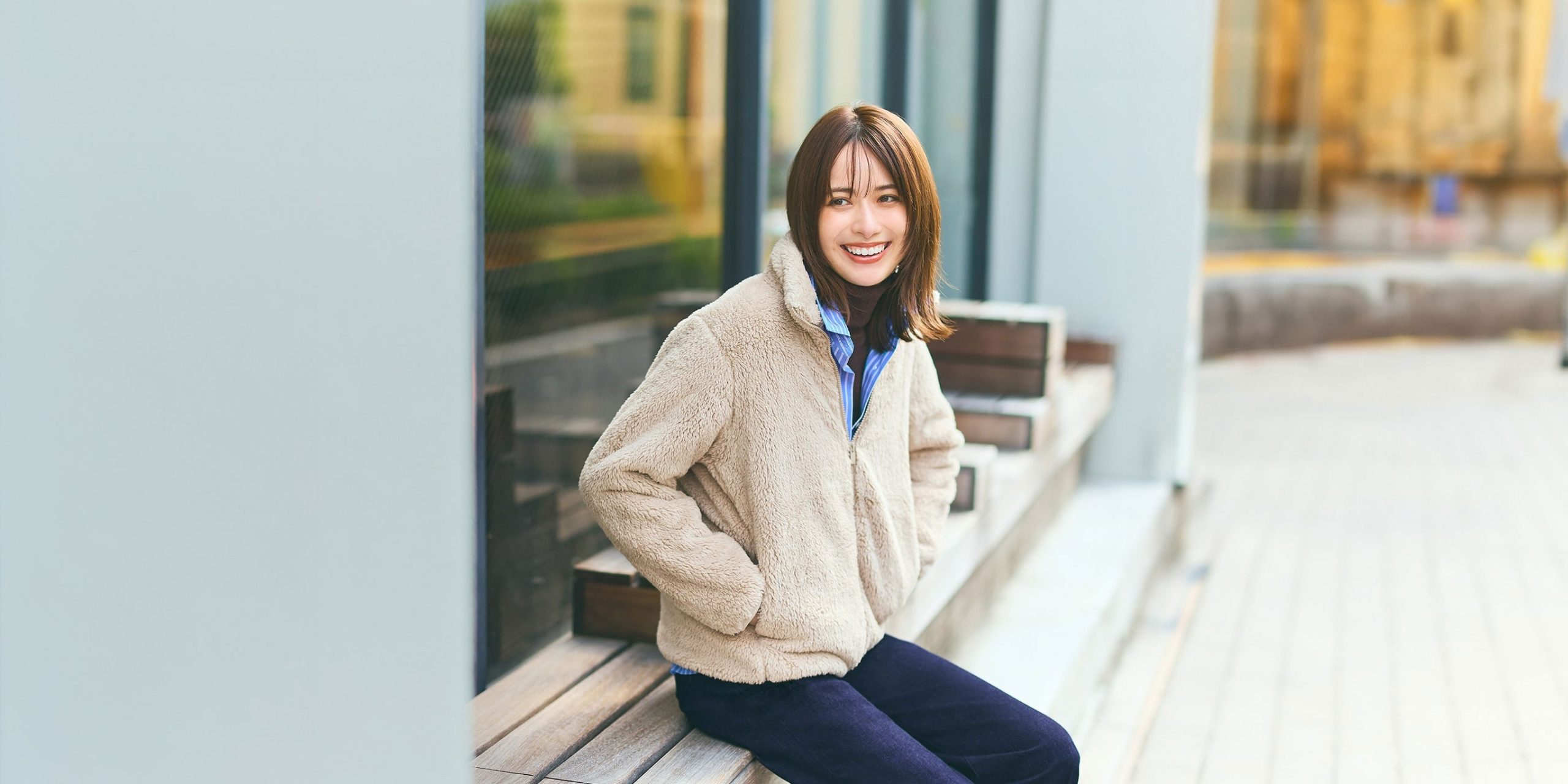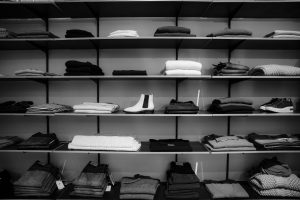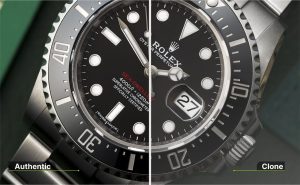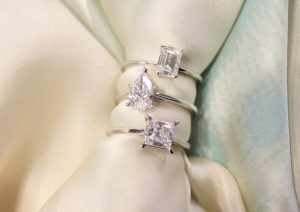When we think of powerful global fashion brands, Uniqlo immediately comes to mind, famed for its high-quality basics and minimalist style. Yet, for many, a question lingers: is Uniqlo a Korean brand or Japanese? Its presence in Seoul, Tokyo, and other cities worldwide, coupled with partnerships with both Korean and Japanese influencers, has led to some confusion.

Uniqlo continues to enjoy tremendous growth by providing high quality, functional and simple apparel at affordable prices. Image: uniqlo.com
The answer is straightforward: Uniqlo is a Japanese brand. In 1972 Tadashi Yanai inherited his father’s chain of twenty-two men’s tailoring stores named Ogori Shoji in Ube Yamaguchi. Shortly after becoming company president in 1984 he opened a new store in Hiroshima named Unique Clothing Warehouse, which was later shortened to Uniqlo.
Uniqlo’s birth and growth in Japan
The first Uniqlo store opened its doors in June 1984. Inspired by his travels to Europe and the US where he discovered large casual apparel chains like Gap, Tadashi Yanai saw immense potential for Japan’s casual wear market and set goals to evolve the family’s business strategy from suiting to casual clothing. He also discovered that several International fashion chains were vertically integrated, taking control of the entire business process. Inspired, he proved the success of the manufacturer-retailer model by controlling the entire process from product planning and production to distribution and marketing.
The Japanese fashion brand enjoyed -and continues to enjoy- tremendous growth by providing high quality, functional and simple apparel at affordable prices for men, women and kids. By April 1994 there were over hundred Uniqlo stores throughout Japan. The brand engaged a retail brand consultancy to guide it through the realisation of this strategy including consulting on merchandise, visual merchandising and display, store design and a new logo designed by Richard Seireeni and Sy Chen from The Brand Architect Group’s Los Angeles office.
In 2001 sales turnover and gross profit reached a new peak with over five hundred retail stores in Japan. When Uniqlo decided to expand overseas, it separated Uniqlo from the parent company and established Fast Retailing (Jiangsu) Apparel Co., Ltd. in China. In 2002 their first Chinese Uniqlo outlet opened in Shanghai along with four overseas outlets in London. 2005 witnessed more overseas expansion with stores opening in the United States, Hong Kong and South Korea.
Why do people harbour a misconception that Uniqlo is a Korean brand?
People often mistake Uniqlo for a Korean brand due to its immense popularity and presence in South Korea, where it has become a major player in the retail landscape. South Korea is one of Uniqlo’s largest markets outside Japan, and the brand has successfully integrated into Korean fashion culture, aligning with local trends while maintaining its minimalist appeal. With over a hundred stores across South Korea, Uniqlo feels like a natural part of the Korean retail environment, leading many to assume it might be a homegrown brand.

Both cultures value understated elegance, so Uniqlo’s style aligns well with Korean fashion preferences. Image: uniqlo.com
Uniqlo also frequently collaborates with Korean celebrities, influencers, and fashion designers, which strengthens its association with Korean culture. Prominent examples include IU, one of South Korea’s most beloved singers and actresses. Known for her versatile fashion sense, IU represented Uniqlo’s LifeWear collection. Her campaigns emphasized the brand’s commitment to everyday essentials, which resonate with IU’s accessible and relatable public persona.
Another notable collaboration was with Kang Daniel, a popular K-pop singer. As a fashion-forward icon with a strong youth following, Kang Daniel’s partnership with Uniqlo helped to attract a younger audience. His association with the brand often highlights Uniqlo’s UT line, which features graphic tees and designs inspired by pop culture, an area that aligns well with his image and fan base. Such collaborations underscore Uniqlo’s strategy of connecting with diverse Korean audiences through high-profile influencers and celebrities who embody the brand’s core values of simplicity, functionality, and style.
More so, there is larger overlap in aesthetic values between Japanese and Korean fashion, particularly in the preference for clean lines, simplicity, and functionality. Both cultures value understated elegance, so Uniqlo’s style aligns well with Korean fashion preferences. Both Japanese and Korean fashion favour garments with clean, straight lines and tailored silhouettes. This preference can be seen in the structure of oversized blazers, boxy shirts, and wide-legged pants that dominate both Japanese and Korean street fashion. The result is a streamlined and effortless look, which is both versatile and sophisticated. Designers from both countries emphasize geometric shapes and straightforward cuts, often avoiding unnecessary adornments or extreme silhouettes. This approach allows the craftsmanship and quality of the fabric to stand out, enhancing the garment’s wearability across various contexts.
Simplicity is a core principle in both Japanese and Korean fashion, often manifested in neutral color palettes and a restrained approach to layering and accessorizing. In Japanese fashion, this principle is rooted in the cultural concept of “wabi-sabi,” which embraces simplicity, asymmetry, and imperfection, celebrating the beauty of modesty and subtlety. Korean fashion similarly adopts these values, with a tendency toward neutral shades like beige, black, and white, or soft pastels that maintain a minimalist and harmonious aesthetic. This simplicity in design creates a timeless, versatile wardrobe that is easy to mix and match, underscoring functionality without sacrificing style.
Functionality in clothing is also a shared priority, with a focus on comfort and practicality that suits daily life. Japanese and Korean fashion often incorporate multi-purpose designs, with pieces that allow freedom of movement and adapt to different settings. Brands from both countries, like Uniqlo in Japan and similar brands in Korea, emphasize comfortable fabrics, innovative materials, and versatile pieces like oversized jackets, relaxed trousers, and breathable innerwear. This practicality extends to both casual and professional settings, allowing wearers to effortlessly transition between different environments without compromising on style or comfort.
This aesthetic synergy, combined with Uniqlo’s deep integration into the Korean market, has blurred the lines for many consumers, adding to the misconception that it might be a Korean brand.
Uniqlo’s Japanese Lineage and Design Philosophy
Uniqlo’s identity is influenced by its Japanese lineage, a heritage that shapes everything from its minimalist designs to its approach to quality. Rooted in the Japanese principle of “kaizen,” or continuous improvement, Uniqlo prioritises high standards in craftsmanship and efficiency. This dedication to perfection has resulted in products that are stylish and functional, catering to the needs of consumers across the globe. The designs lean towards timelessness and simplicity, inspired by Japanese aesthetics that favour minimalism and utility over excess.
Another core tenet of Uniqlo’s design philosophy is practicality, embodying the Japanese value of “seiketsu” which emphasises cleanliness and order. Uniqlo’s clothing is designed to integrate seamlessly into daily life, enhancing comfort and ease for its wearers. Pieces are crafted for different climates, seasons, and lifestyles, evident in innovations like their ultra-light down jackets and breathable inner-wear. This versatility reflects the Japanese concept of “omotenashi”, where the brand anticipates and meets the needs of its customers in subtle ways. From fabric choices to functional details, Uniqlo focuses on creating garments that support an active lifestyle, which has universal appeal while remaining distinctly Japanese in ethos.
Uniqlo’s commitment to quality is seen in its dedication to sustainable practices, reflecting Japan’s respect for nature and resources. The brand’s partnership with textile innovators, like Toray Industries, showcases its commitment to creating high-performance fabrics that are both functional and environmentally conscious. Moreover, Uniqlo’s “LifeWear” concept encapsulates its design philosophy: clothing should enhance life rather than complicate it. By focusing on longevity and utility, Uniqlo creates pieces that people reach for year after year, a testament to its Japanese lineage that values simplicity over disposability.
Related Content:
How Uniqlo is Japanese in foundation but global in appeal

Uniqlo is a wholly-owned subsidiary of Fast Retailing Company Limited. Image: uniqlo.com
- Japanese Design Principles: Uniqlo’s foundation is built on Japanese design values such as minimalism, functionality, and timeless aesthetics, emphasizing simplicity and quality over fleeting fashion trends. This approach creates versatile pieces that resonate across cultures.
- Commitment to Quality: Rooted in the Japanese philosophy of “kaizen”, Uniqlo prioritises high standards in craftsmanship and innovation, leading to durable and practical clothing that appeals to a global audience seeking reliable, everyday wear.
- Technological Innovation with Japanese Partners: Collaborations with Japanese technology firms, like Toray Industries, allow Uniqlo to create high-performance fabrics like HEATTECH and AIRism that meet diverse lifestyle needs, attracting consumers who value functional, adaptable clothing.
- Timeless “LifeWear” Concept: Uniqlo’s “LifeWear” philosophy focuses on enhancing daily life through simple, durable, and seasonless designs—an approach rooted in Japanese values but universally relevant, appealing to anyone seeking versatile, long-lasting pieces.
- Global Brand Strategy: While staying true to its Japanese origins, Uniqlo tailors its collections and marketing to fit local cultures and preferences in each country, making it feel familiar and accessible, whether in New York, Paris, Seoul, or Tokyo.
Uniqlo continues robust global growth trajectory
Today Uniqlo is a wholly-owned subsidiary of Fast Retailing Company Limited and is acclaimed for its high-quality private-label life-wear at low prices. In fact, Uniqlo International has been opening a stream of new stores around the world, which encourages consumers to experience the benefits of Lifewear firsthand, in turn strengthening business performance. The results are there for all to see: Uniqlo experienced large 3Q revenue and profit gains in Fiscal 2024, due to strong sales of its summer collections.
Per Fast Retailing: ‘Uniqlo Japan reported an increase in revenue and a significant rise in profits in the first nine months of fiscal 2024, with revenue totaling 722.0 billion yen (+1.7% year-on-year) and operating profit reaching 127.8 billion yen (+28.3% year-on-year).’
Uniqlo International also reported a significant increase in both revenue and profit in the first nine months of fiscal 2024, with revenue rising to 1.2928 trillion yen (+17.8% year-on-year) and operating profit expanding to 221.9 billion yen (+20.6% year-on-year). Uniqlo’s brand recognition is rising across all markets as a result of its persistent strategy of opening new stores around the world that enable people to experience the benefits of LifeWear, and this is now helping to generate a virtuous cycle of strengthening business performance.
Per Fast Retailing: ‘Breaking down the Uniqlo International third-quarter performance from March to May into individual regions and markets and viewing performance on a local currency basis, the Mainland China market and Hong Kong market reported declines in revenue and large contractions in profit… By contrast, the Taiwan market reported large revenue and profit gains and South Korea reported higher revenue and profit on the back of strong sales of Summer ranges.’
Uniqlo Europe reported an impressive growth trajectory in revenue and profit. Raising brand visibility across the region helped generate higher-than-anticipated sales at their newly opened stores in Edinburgh in the UK and Rome, Italy, and the region also reported impressive double-digit year-on-year growth in same-stores sales over the three-month period.
Read More:

Jasmeen Dugal is Associate Editor at FashionABC, contributing her insights on fashion, technology, and sustainability. She brings with herself more than two decades of editorial experience, working for national newspapers and luxury magazines in India.
Jasmeen Dugal has worked with exchange4media as a senior writer contributing articles on the country’s advertising and marketing movements, and then with Condenast India as Net Editor where she helmed Vogue India’s official website in terms of design, layout and daily content. Besides this, she is also an entrepreneur running her own luxury portal, Explosivefashion, which highlights the latest in luxury fashion and hospitality.











